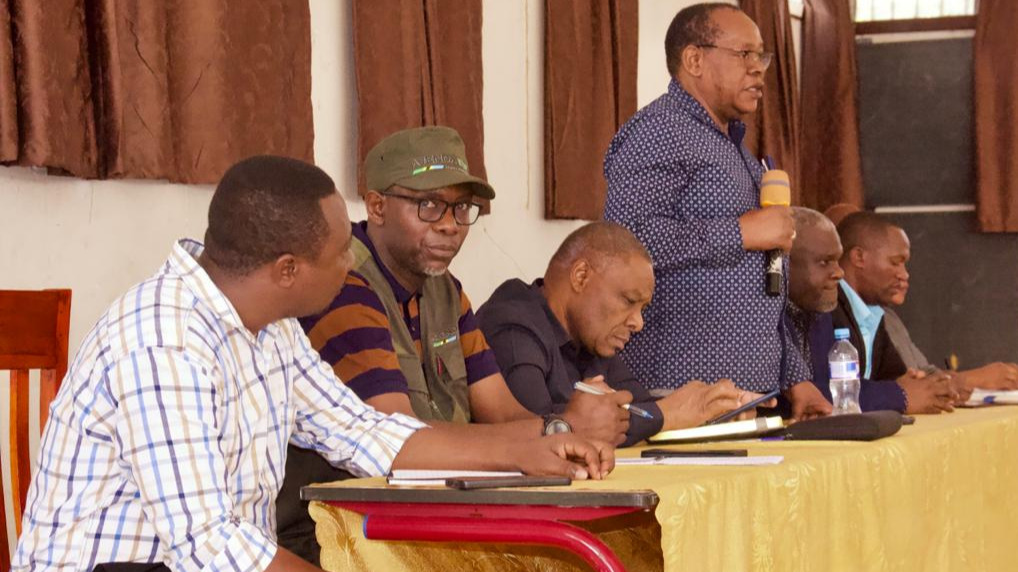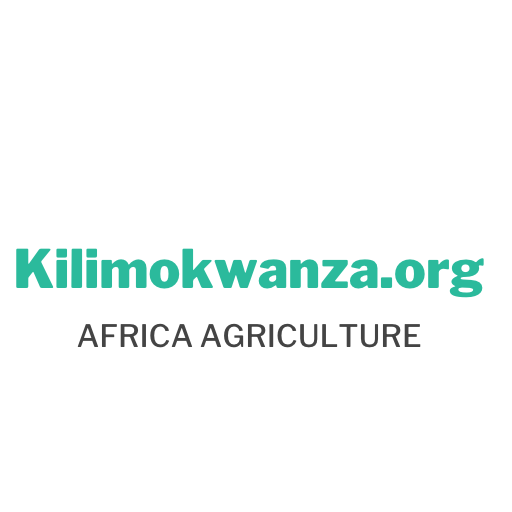Minister Ulega and AGRA’s Keizire Urge Investment in Climate-Smart Agriculture
In a crucial session at COP28 focused on the resilience of small-scale farmers amid the climate crisis, Tanzanian Minister of Agriculture Abdallah Ulega provided profound insights into the challenges and strategies for sustaining agriculture in vulnerable regions.
In the Food Systems Pavilion session, experts and stakeholders gathered to address one of the most pressing challenges of our time: ensuring the future of farming and food in the face of the escalating climate crisis. The day’s theme, “AMPLIFY: Priorities and Voices of Small-Scale Producers and Pastoralists,” set the tone for a deep dive into sustainable agricultural practices and their critical role in combating climate change.
Tanzanian Minister of Agriculture Abdallah Ulega presented a thought-provoking and detailed perspective on the challenges and potential strategies for sustainable agriculture in the context of the global climate crisis. His speech was a profound reflection of the disproportionate impact of climate change on countries like Tanzania and a call to action for the international community.
Minister Ulega said, “First of all, we believe that the African continent is responsible for just under 3% of historic global emissions. We should not bear the burden of emissions from the Global North or other countries.” This assertion not only highlighted the inequity in the global distribution of responsibility for climate change but also underscored the unique challenges faced by African nations.
He emphasized the need for sustainable development in the agricultural sector, particularly in livestock production, to meet the growing demand for animal proteins. “To meet the growing demand for animal proteins, we need sustainable ways to improve productivity while protecting the environment,” he explained. Minister Ulega stressed the importance of greater investment in improving livestock productivity, which he believes will lead to better adaptability and resilience against climate shocks and also mitigate emissions.
Minister Ulega also spoke about the need for investment in services and insurance systems to protect farmers from environmental uncertainties. He expressed interest in innovative programs like the series-indexed livestock insurance program, highlighting its potential benefits for Tanzanian farmers. “I would like to see innovative programs like the series-indexed livestock insurance program coming to Tanzania. Farmers deserve protection from an uncertain future, and we are looking to see this happen in Tanzania,” he stated.
In terms of partnerships, he called for collaboration with organizations like the International Livestock Research Institute (ILRI), the Netherlands Development Organisation (SNV), and the World Bank to support the transition to a more productive, sustainable, and healthy livestock sector in Tanzania.
The minister also discussed the legacy program (BBT-LIFE program) led by Tanzanian President Dr. Samia Suluhu Hassan, aimed at empowering young women and men through the livestock sector. He detailed the program’s focus on livestock fattening, including cattle, poultry, goats, and sheep, and the collaboration with ILRI on improved genetics and Akm Glitters, a local company, to enhance production and marketing. “We have a legacy program… to empower young women and men through the livestock sector, especially in the fattening program… Working with ILRI on improved genetics and with Akm Glitters, a local company in Tanzania, we have developed a unique program using recent female graduates to support brooding and extension services to help women chicken raisers improve production and marketing,” he elaborated.
Minister Ulega highlighted the critical need for investment in sustainable livestock systems in Tanzania. He presented a vision where Africa could achieve a triple win: improving livelihoods and nutrition, adapting to climate threats such as heat stress, drought, and flood, and mitigating greenhouse gas emissions.
AGRA’s Boaz Blackie Keizire Highlights Tanzania’s Role in Agricultural Innovation and Calls for Global Investment
Boaz Blackie Keizire, the Head of Policy at the Alliance for a Green Revolution in Africa (AGRA), emphasized the critical role of Tanzania in agricultural innovation and the urgent need for increased global investment and support. He hailed the Tanzania BBT program as workable, bankable, and financiable, and a good strategy for Tanzania. He was representing AGRA President Agnes Kalibata.
Keizire acknowledged the progress in agriculture, largely attributed to the relentless efforts of farmers. He remarked, “There has been a lot of efforts that farmers are putting in place to make sure that change happens, but there are a lot of headwinds.” This acknowledgment set the stage for a discussion on the multifaceted challenges faced by the agricultural sector, especially in the wake of climate change and other global disruptions.
Addressing the impact of climate change, Keizire highlighted the significant reduction in agricultural yields, with a specific mention of maize production. “The yield that farmers have realized in the recent past has been reduced to less than normal 1.8 metric tons of maize per hectare, now reduced almost one metric ton per hectare,” he explained, illustrating the dire consequences of environmental changes on crop productivity.
Keizire also pointed out the disruptions caused by the COVID-19 pandemic, affecting markets and value chains, and hampering agricultural progress. Despite these challenges, he emphasized the need for robust action and increased investment in the sector. He noted, “Investments are not sufficient… private sector investing, but the investments are not enough,” underscoring the inadequacy of current levels of investment from major institutions like the African Bank and the World Bank.
A significant part of Keizire’s address focused on the importance of innovation in agriculture. He recalled traditional practices in Southwestern Uganda, where farmers used natural methods to enhance soil fertility and crop yields, lamenting the loss of such practices due to environmental degradation. “I used to see a lot of farmers going into the wetlands, cutting a lot of biomass, mulching the plantations, and increasing yields,” he said, advocating for the integration of such traditional knowledge with modern technologies like artificial intelligence and machine learning.
Highlighting Tanzania’s efforts, Keizire praised the country’s ‘building back better’ initiative as an example of a forward-thinking approach to agricultural development. He stressed the need for strong policy frameworks to encourage private sector investment and to keep pace with the rapidly changing global landscape.
Keizire called for a reassessment of global financing strategies in agriculture, emphasizing the need for a balanced approach that includes both traditional knowledge and advanced technologies. He urged for enhanced support for countries like Tanzania, which are at the forefront of agricultural innovation and development. His speech was a compelling call to action for the international community to recognize and bolster efforts towards sustainable and resilient agricultural practices in the face of global challenges.
Earlier Insights and Discussions
Earlier, the session had commenced with insightful opening remarks by Simon O’Connell, CEO of SNV, and Namukolo Covic from ILRI. Their messages underscored the urgency of the situation, particularly for smallholder farmers in the Global South, who are disproportionately affected by climate change.
Farmers Share Real-world Challenges
The highlight of the session was the series of pitches from farmers themselves, offering a poignant look into the challenges they face daily. Maness Nkhata, President of the Farmers’ Union of Malawi; Stephen Muchiri, CEO of the East Africa Farmers Federation; and Monicah Yator, a pastoralist farmer and founder of the Indigenous Women and Girls Initiative, shared their experiences and struggles, painting a vivid picture of the current landscape.
Expert Panelists Offer Insights and Solutions
The panel discussions, led by a diverse group of experts, delved into how sustainable agri-food and livestock systems can mitigate land degradation, enhance biodiversity, and transform food systems. Key panelists included Abdallah Ulega, Tanzania’s Minister for Livestock and Fisheries; Andrew Mude from the African Development Bank, and other distinguished experts.


